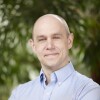Intro: Why Research?

Laser-safety goggles are pictured on a bench within the Munnerlyn Astronomical Laboratory at Texas A&M University. Image courtesy of Texas A&M University.
Physics is an experimental science and, by its very nature, is broad in scope and application. Sometimes, that makes it difficult to explain to someone what physics research is, as it means your questions are limited only by your drive and imagination. In a very real sense, the possibilities are endless.
The world is our lab, and physics research can occur anywhere: making circuits in the lab late at night, scouring historical texts and documentation, exploring new fields through summer internships, conducting life-changing outreach activities, or working in industry. Spanning the full range from bench science to computational modeling to theoretical musings, research for physicists and astronomers is as broad as our courses: mechanical, computational, thermal, biophysics, quantum, electronics, and the list goes on. This breadth is great news for us because it that means we can be found solving problems in a wide range of situations and getting into all manner of trouble.
Research experiences, whether over the summer at a national lab or done between classes during the semester, can alter your career pathway and, just maybe, our entire understanding of some physical system. No matter where you go, you’ll always be a physicist.
This issue of The SPS Observer focuses on undergraduate research experiences, and we hope it’s just the thing you need to read before you get started on your own research experiences. Keep in mind that research is what you make it, and if it were easy, it would probably already be done! By challenging ourselves and our knowledge, we can begin to understand the unknown.

Laser-safety goggles are pictured here on a bench within the Charles R. ’62 and Judith G. Munnerlyn Astronomical Laboratory at Texas A&M University.
About the image
Laboratory safety is a critical component of any research program. The laser-safety goggles pictured here on a bench within the Charles R. ’62 and Judith G. Munnerlyn Astronomical Laboratory at Texas A&M University are essential in safeguarding the eyes against potential damage from ultraviolet light sources used to calibrate astronomical imaging systems for any number of international projects, from the Dark Energy Survey to the Giant Magellan Telescope. Learn more
FIND ADDITIONAL OPPORTUNITIES
Search the NSF REU Sites
Search for National Science Foundation (NSF) REU sites
Find Research Opportunities and Internships on SPS Jobs
SPS Jobs is the ideal place for undergraduates to find exciting REUs and summer internships, along with full-time Bachelor-level jobs in science and engineering. Prime REU hiring season is September thru February, so REGISTER NOW with SPS Jobs and create job alerts to notify you of relevant new listings as they’re posted. SPS Jobs is part of the AIP Career Network, a collection of online job sites for scientists, engineers, and computing professionals managed by the American Institute of Physics.
Visit SPS Jobs




